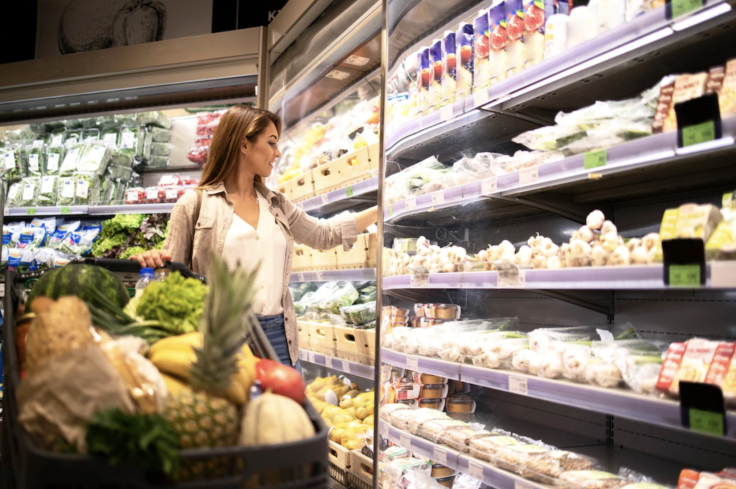83% Of Australians Blame Supermarkets For Rising Living Costs, Poll Reveals

Consumers in Australia said supermarkets deserve part or a lot of the blame for rising living costs, suggesting that increasing competition between major stores like Coles and Woolworths could help lower costs, a new poll has revealed.
Out of 1,014 respondents, 83% said supermarkets deserve some or a lot of blame for rising living costs, and 64% suggested that increasing competition between major supermarkets like Coles and Woolworths could help lower costs, the new poll released by the Australia Institute's Centre for Future Work has revealed, News.com reported.
Six out of 10 people reported that the rising cost of living came from groceries, 21% pointed to utilities and 7% mentioned transport. While 82% blamed energy companies, 73% pointed to banks, and 71% cited the government for the rising cost of living issues.
Centre For Future Work senior researcher and report co-author Lisa Heap said the results highlighted the frustration Australians feel toward supermarkets.
"These results are emphatic. Australians are pointing the finger squarely at supermarkets as public enemy number one in the cost-of-living crisis," Heap said. "It's clear Australia's supermarket duopoly is on the nose with the electorate."
The poll results come as the Albanese government planned a mandatory grocery code to impose multimillion-dollar fines on businesses that violate the rules.
The consumer watchdog Australian Competition and Consumer Commission had announced legal action against the supermarket giants, Coles and Woolworths, for allegedly raising prices on over 500 items and advertising them as misleading discounts.
Chief executive of the Australia Food and Grocery Council Tanya Barden said the food supply chain was also under pressure, leading to rising prices, AAP reported.
"The uncomfortable reality is food manufacturing in Australia is under immense pressure. Commodities like cocoa, sugar and packaging as well as energy and gas prices have all risen and unfortunately show no sign of easing," she said. "In this supply-led inflationary environment we need supply-side solutions. Support from government for domestic manufacturers to boost productivity will be vital in easing that inflationary pressure."
A spokesperson for Woolworths said the chain was dedicated to helping customers save money, but also cited inflation leading to rising operating costs for suppliers.
"Many of the increased costs households are facing are also unfortunately making it more expensive for our suppliers to produce food and groceries – from electricity and fuel, to rent and interest rates," the spokesperson said. "We remain committed to helping customers save at the checkout, including thousands of weekly specials, everyday low prices on household essentials, a great value own brand range which is on average 30% cheaper than equivalent mainstream brands."
When asked about policy changes that could lower living costs, 64% of respondents suggested increasing competition among the major supermarkets and reducing utility costs. While 60% called for lower medical expenses, 58% advocated for faster wage growth.
"Nearly two-thirds of voters see it as crucial for alleviating cost-of-living pressures," Heap said. "Australians are now demanding action on supermarket competition with the same urgency as they're calling for lower utility costs and higher wages. There's likely to be political rewards for taking actions that increase supermarket competition."
Coles and Woolworths, which dominate nearly two-thirds of Australia's supermarket sector, have been accused of exploiting suppliers, stifling competition, and overcharging customers.
© Copyright 2025 IBTimes AU. All rights reserved.





















